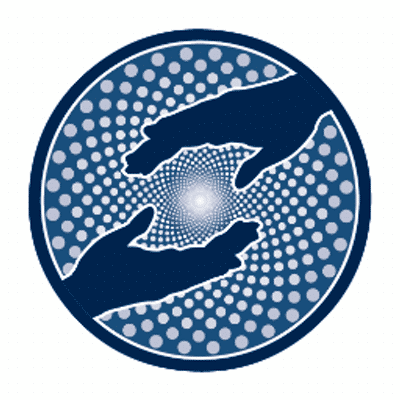预约演示
更新于:2026-02-24
Quazepam
夸西泮
更新于:2026-02-24
概要
基本信息
药物类型 小分子化药 |
别名 Quazepam (JAN/USP/INN)、NSC-309702、SCH 161 + [11] |
作用方式 激动剂 |
作用机制 GABAA receptor激动剂(γ-氨基丁酸 A 受体激动剂) |
非在研适应症- |
原研机构 |
非在研机构- |
最高研发阶段批准上市 |
首次获批日期 美国 (1985-12-27), |
最高研发阶段(中国)- |
特殊审评- |
登录后查看时间轴
结构/序列
分子式C17H11ClF4N2S |
InChIKeyIKMPWMZBZSAONZ-UHFFFAOYSA-N |
CAS号36735-22-5 |
关联
1
项与 夸西泮 相关的临床试验NCT00707915
Effects of Discontinuation of Benzodiazepine-derivative Hypnotics on Cognitive and Motor Functions in Elderly Persons: a Pilot Study
Benzodiazepines (BZDs) have been reported to cause negative impacts on motor as well as cognitive functions, which in turn could result in lethal incidents including falls especially in the elderly. This notwithstanding, few trials have evaluated a feasibility and benefits of discontinuing BZD-derivative hypnotics in a systematic manner in this frail population. In this 8-week open-label study, we examined changes in motor and cognitive functions following the discontinuation of BZD hypnotics in older persons.
OBJECTIVES & HYPOTHESES
1. Primary Objective The primary objective is to examine the feasibility of discontinuing BZD-derivative hypnotics in older people.
2. Secondary Objectives
1. One of the secondary objectives is to examine the magnitude of discontinuing BZD-derivative hypnotics in the stability of body.
2. Another secondary objective is to examine the magnitude of discontinuing BZD-derivative hypnotics in cognitive function.
Hypotheses
1. More than 80% of the participants will complete and tolerate all the study procedures.
2a. Participants will show an improvement in the stability of body. 2b. Participants will show an improvement in the cognitive function globally as well as specifically in attention.
OBJECTIVES & HYPOTHESES
1. Primary Objective The primary objective is to examine the feasibility of discontinuing BZD-derivative hypnotics in older people.
2. Secondary Objectives
1. One of the secondary objectives is to examine the magnitude of discontinuing BZD-derivative hypnotics in the stability of body.
2. Another secondary objective is to examine the magnitude of discontinuing BZD-derivative hypnotics in cognitive function.
Hypotheses
1. More than 80% of the participants will complete and tolerate all the study procedures.
2a. Participants will show an improvement in the stability of body. 2b. Participants will show an improvement in the cognitive function globally as well as specifically in attention.
开始日期2008-01-01 |
申办/合作机构- |
100 项与 夸西泮 相关的临床结果
登录后查看更多信息
100 项与 夸西泮 相关的转化医学
登录后查看更多信息
100 项与 夸西泮 相关的专利(医药)
登录后查看更多信息
219
项与 夸西泮 相关的文献(医药)2025-11-01·JOURNAL OF PHARMACEUTICAL SCIENCES
Exploring a new approach in biopharmaceutics to improve the estimation of stomach solubilization from the mathematical model with a single stomach compartment setting: The impact of stomach solubilization on the food effect of quazepam
Article
作者: Nagapudi, Karthik ; Chiang, Po-Chang ; Dolton, Michael J ; Liu, Jia
The pharmaceutical sector is increasingly prioritizing the improvement of predictive modeling for human pharmacokinetics (PK) related to drug candidates, aiming to reduce costs and enhance efficiency in research and development. Most of these initiatives have focused on predicting drug absorption after oral administration, which is the preferred method for drug delivery. Despite significant progress in this field, accurately forecasting the fraction of the dose that is absorbed (Fa) continues to pose a considerable challenge. In recent years, multi-compartment and transit models have become increasingly popular because of their effectiveness. However, these models treat the stomach as a single compartment with a fixed pH, which can lead to inaccuracies in estimating the solubilization of basic drugs in the stomach under certain conditions, ultimately resulting in false results. To address the above challenge, a kinetic stomach pH calculator that converts a pH-time profile to a single pH input has been introduced, yet it remains inadequate for drugs with low base pKa values such as quazepam. This article explored the integration of pH-dependent solubility into the stomach compartment on the previously published kinetic model, demonstrating its potential to improve the predictive accuracy regarding the impact of food on quazepam. This innovative method has demonstrated greater effectiveness in assessing the impact of food on basic drugs with low pKa. It is suggested that this revised approach may prove advantageous for all models encountering similar difficulties.
2025-01-02·Expert Opinion On Drug Safety
Risk of drug-induced delirium in older patients- a pharmacovigilance study of FDA adverse event reporting system database
Article
作者: Li, Jiayu ; Zhou, Ying ; Jia, Boying ; Zhou, Shuang ; Wan, Liyan ; Cui, Yimin
BACKGROUND:
Drug-induced delirium is known risk factors associated with increased morbidity and mortality in older patients. The objective was to evaluate the risk of drug-related delirium in older patients based on the FDA Adverse Event Reporting System (FAERS).
RESEARCH DESIGN AND METHODS:
Delirium reports in older patients (age ≥65) extracted from the FAERS database using Open Vigil 2.1. The reported odds ratio and the proportional reported ratio were calculated to detect the adverse reaction signal of delirium. Combined with published evidence, suspected drugs were categorized as known, possible, or new potential delirium-risk-increasing drugs.
RESULTS:
Of the 130,885 reports (including 28,850 delirium events and 1,857 drugs) analyzed for this study, 314 positive signal drugs were detected. Positive signal drugs are mainly concentrated on the drug of nervous system, cardiovascular system , alimentary tract and metabolism and anti-infectives for systemic use. Of the positive signal drugs, 26.11% (82/314) were known delirium-risk increasing drugs, 44.90% (141/314) were possible and 28.98% (91/314) were new potential.
CONCLUSION:
Drug-induced delirium risk is prevalent in older patients, according to the FAERS. The risk level of drug-induced delirium should be taken into account to optimize drug therapy in clinical practice.
2024-09-01·BIOORGANIC & MEDICINAL CHEMISTRY LETTERS
Stereochemical properties of quazepam and its affinity for the GABAA receptor
Article
作者: Takano, Ryota ; Takahashi, Hideyo ; Natsugari, Hideaki ; Tabata, Hidetsugu ; Oshitari, Tetsuta ; Nakamura, Kayo ; Tanaka, Ryoko
C9-methylated quazepam 1 was prepared, and its physicochemical properties were investigated. The atropisomers of 1 were isolated as (a1R, a2S) and (a1S, a2R) isomers. Their absolute configurations were determined based on ECD spectra in comparison with those calculated using the time-dependent density functional theory. Preliminary examination of affinity for the GABAA receptor revealed that the (a1R, a2S) isomer of 1 possessed higher activity than its antipode (a1S, a2R) isomer. The active configuration of C9-methylated quazepam 1 is the same as that of 1,4-benzodiazepin-2-ones.
5
项与 夸西泮 相关的新闻(医药)2025-09-24
·药通社
睡眠,作为人体不可或缺的生理需求,却成为了我国众多成年人的 “难题”。据中国睡眠研究会《2025 年中国睡眠健康调查报告》显示,我国 18 岁及以上人群中,睡眠困扰率高达 48.5%。
这一数据背后,不仅反映出国民睡眠健康问题的严峻性,更揭示出抗失眠药物领域巨大的市场需求。
据悉,9月16日,扬子江药业集团表示,公司自主研发的1类抗失眠创新药法赞雷生的新药上市申请已被受理。
法赞雷生是一款双重食欲素受体拮抗剂(YZJ-1139片),它能够同时抑制食欲素受体1型和2型,加快睡眠速度,延长深睡时间。
同时扬子江还发布了法赞雷生Ⅲ期关键性临床研究成果:共1034例成人失眠症患者服用试验药物,结果显示,在成人失眠患者中表现出快速起效和良好的安全性。
国内抗失眠药,也是卷起来了。
↓ 扫码加入药通社交流群 ↓
简单梳理一下国内的主要失眠药物以及发展过程,抗失眠药主要分四代。
第一代抗失眠药主要是苯巴比妥类,副作用过大,已不作为抗失眠一线药物使用。
第二代抗失眠药主要是苯二氮卓类的镇静催眠药,又叫安定药物,包括艾司唑仑、氟西泮、替马西泮、三唑仑、夸西泮和地西泮等。二代药物的问题在于半衰期较长,发生依赖和成瘾的风险较高,在有其他更安全药物可选的情况下,也几乎已经排除初始使用。
第三代抗失眠药主要是非苯二氮卓类的催眠剂,如唑吡坦、扎来普隆、佐匹克隆、右佐匹克隆等。这类药物同样存在生理依赖性问题,长期使用后停用会引发戒断症状,次日晨间残留镇静的风险较高,在我国被归为二类精神药品管理。
简单来说,前三代抗失眠药均存在不小弊端,由此产生了第四代抗失眠药——双重食欲素受体拮抗剂。
相较于传统失眠药物,食欲素受体拮抗剂可凭借独特机制,减少唤醒驱动、诱导睡眠发生、且不改变睡眠结构,没有次日残留效应和药物依赖性,可以很好弥补前三代药物的不足。第四代抗失眠药的问世迅速革新了失眠治疗领域,也成为行业的热门研究方向。
截至目前,全球第四代抗失眠药的代表药物共有3个:苏沃雷生、莱博雷生和达利雷生。
默沙东的苏沃雷生是全球首个上市的食欲素受体拮抗剂,于2014年8月13日获FDA批准上市,至今并未在我国上市。
值得注意的是,虽未在国内上市,2023年4月,苏沃雷生依旧被列入第二类精神药品目录。目前仅有天津天药药业股份有限公司以3类仿制提交了苏沃雷生的仿制药上市申请。
而卫材的莱博雷生和先声&Idorsia的达利雷生则均已于今年在我国获批上市,前者于5月获批,后者仅落后1个月。
同属于第四代抗失眠药,获批时间仅差一个月,自然免不了比较和竞争,而站在消费者的角度来说,最关注的自然是二者的定价。
这两款药物均已公布定价,且价格都较高,莱博雷生5mg*14片*2版的价格为498元,日均治疗价格约17.97元。达利雷生50mg*20片的价格为398元,日均治疗价格约19.9元。
但值得注意,这两款药物均已通过2025年医保目录审查,为了纳入医保,莱博雷生和达利雷生的价格应当还会再降。
但总之,目前二者已围绕商业化展开殊死较量,明年业绩上或可见分晓。
除了这两款双重食欲素受体拮抗剂之外,抗失眠药还有一款地达西尼胶囊,同样是“失眠新救星”。
2023年11月29日,京新药业申报的1类创新药地达西尼胶囊获批上市,为中国16年来首个获批的失眠治疗创新药。
地达西尼的特殊之处在于,虽然同属于苯二氮卓类药物,但这款药能够做到几乎对日间活动无影响,与双重食欲素受体拮抗剂算是各有优势。
图源:大话精神
2024年11月28日,国家医保局公布2024年国家医保药品目录调整结果,其中浙江京新药业股份有限公司1类创新药地达西尼胶囊通过国家医保谈判,首次纳入新版国家医保目录。
被纳入医保后,地达西尼2025年上半年销售额就直接涨到了三千万以上,增速惊人,同样是不可小觑的对手。
除上述已上市产品外,国内还有诸多在研的抗失眠症新药,上述扬子江的法赞雷生国内自研进度最快的一款,除此之外,恒瑞医药、豪森药业、信立泰等大型药企均有布局。
水合氯醛这一镇静催眠成分,四川大光和成都倍特等公司在做剂型改良。
老镇静成分右美托咪定,同样有多家企业在进行鼻喷、舌下片、微针贴剂等剂型改良。
豪森药业的新药HS-10506片已进入Ⅱ期临床阶段,适应症为失眠症和抑郁症。
布瑞迅药业的新药BrP-01096正在进行Ⅰ期临床,适应症为失眠症。
抗失眠药物市场仍拥有广阔的发展空间。市场仍在放量,就看谁能先抓住机会了。
↓⭐关注药通社,洞见行业趋势↓
投稿/企业合作/内容沟通:
药通社总编—华籍美人(Ww_150525)
*添加请注明备注及来意
上市批准临床3期
2024-07-02
TUESDAY, July 2, 2024 -- Benzodiazepines do not appear to increase dementia risk, but could have subtle long-term effects on brain structure, a new study reports.
Researchers found no link between use of the sedative drug and a higher risk of dementia in a group of more than 5,400 adults in the Netherlands, according to findings published July 2 in the journal
BMC Medicine
.
That runs counter to two previous meta-analyses reporting increased dementia risk with benzodiazepine use, researchers noted.
However, brain MRI scans taken of more than 4,800 participants revealed that benzodiazepine use is associated with accelerated shrinking of some brain regions, results show.
The findings “support current guidelines cautioning against long-term benzodiazepine prescription,” concluded the research team led by
Dr. Frank Wolters
, a senior scientist of epidemiology and radiology and nuclear medicine at Erasmus Medical Center in the Netherlands.
“Further research is needed to investigate the potential effects of benzodiazepine use on brain health,” the team adds.
Benzodiazepines promote the release of a neurotransmitter that makes the nervous system less active, the Cleveland Clinic says. Different types are used as sedatives or to treat
anxiety
, insomnia and seizures.
Analysis of medical records between 2005 and 2020 and pharmacy records between 1991 and 2008 revealed no association between benzodiazepines and increased risk of dementia, regardless of the total quantity of sedatives people took over time.
The team also found no link between dementia risk and specific types of benzodiazepines or the time it took for dosages to wear off.
However, benzodiazepine use was associated with an accelerated reduction in the volume of the hippocampus and amygdala, which are brain regions involved in memory and mood regulation.
Certain types of benzodiazepines also were associated with changes in the size of white matter, which transmits nerve signals between brain regions, researchers said.
Anxiolytic benzodiazepines prescribed for anxiety caused less shrinkage of white matter, results show. These include alprazolam (Xanax), clonazepam (Klonopin), clorazepate (Tranxene) and lorazepam (Ativan, Loreev), according to the Cleveland Clinic.
On the other hand, sedative-hypnotic benzodiazepines prescribed for sleep problems caused a quicker reduction in white matter volume. These include temazepam (Restoril), triazolam (Halcion) and quazepam (Doral), the Cleveland Clinic says.
Whatever your topic of interest,
subscribe to our newsletters
to get the best of Drugs.com in your inbox.
2024-01-03
关注并星标CPHI制药在线 睡眠障碍是指睡眠质量异常或睡眠时发生某些临床症状,如睡眠减少或睡眠过多、睡眠相关运动障碍等,后者包括睡眠行走、睡眠惊恐、不宁腿综合征等。其中最主要最常见的是失眠障碍,以持续睡眠时间过短、早醒以及入睡困难为最主要的3个症状。失眠治疗有躯体治疗(包括药物治疗、物理治疗等) 、心理治疗或者心理治疗联合躯体治疗的综合治疗等。虽然美国内科医师学会将认知行为疗法确定为失眠的一线治疗方法。但由于认知行为疗法存在费用高、咨询时间长、缺乏训练有素的提供者及不能立竿见影等弊端,难以在临床开展。因此,药物治疗依然广泛应用于是失眠治疗。 目前推荐在临床常用的治疗失眠药物包括苯二氮䓬受体激动剂、褪黑素及褪黑素受体激动剂、食欲素受体拮抗剂、组胺拮抗剂及抗焦虑、抗抑郁类药物。对单纯失眠患者,一般首选非苯二氮䓬类药物或褪黑素受体激动剂单药治疗,当单药治疗效果不佳时考虑联合不同作用机制的镇静催眠药治疗;对合并情绪障碍患者,需根据症状选择苯二氮䓬类药物或联合具有镇静作用的抗抑郁药、抗精神病药物治疗。 1、苯二氮䓬受体激动剂 苯二氮䓬受体激动剂(benzodiazepine receptor agonists,BzRAs)作为临床上最常用于治疗失眠的药物,可分为苯二氮䓬类药物(benzodiazepine drugs,BZDs)与非苯二氮类药物(nonbenzodiazepine drugs,NBZDs)。 临床常见用于失眠治疗的BZDs有阿普唑仑、艾司唑仑、劳拉西泮、氯硝西泮等,主要适用于入睡困难和睡眠维持障碍的成年患者,尤其适用于伴有焦虑症的失眠患者。BZDs 通过非选择性结合苯二氮䓬受体,增加γ- 氨基丁酸(gamma aminobutyric acid,GABA)受体的亲和力,促进氯离子内流,导致苯二氮䓬受体所在神经元出现超极化,起到镇静催眠、抗焦虑和肌肉松弛等药理作用。BZDs 可以缩短睡眠潜伏期,减少夜间觉醒,增加总睡眠时间,但深度睡眠时间减少,患者服用后虽然觉得入睡改善、睡眠时间延长,但睡眠质量仍较低。BZDs可能会导致日间思睡、头晕、乏力和认知功能下降,老年患者还可能增加跌倒、骨折的风险。长期使用BZDs 的患者可能形成心理和躯体依赖,且部分患者在停药后出现严重的戒断症状,出现反跳性失眠和焦虑情绪加重,因此长期服用BZDs 的患者需缓慢撤药。美国医师协会在失眠药物治疗指南列出批准治疗失眠的BZDs 有艾司唑仑、 氟西泮、 夸西泮、 替马西泮和三唑仑。 NBZDs通过选择性结合苯二氮䓬受体,抑制睡眠中枢产生镇静催眠作用,但一般不具有抗焦虑作用。临床上常见的NBZDs 有唑吡坦、扎来普隆、佐匹克隆和右佐匹克隆, NBZDs的半衰期较短,白天残留镇静作用少见,尤其唑吡坦和扎来普隆对改善入睡困难效果满意,但对睡眠维持作用不大,佐匹克隆和右佐匹克隆半衰期稍长,对入睡困难和睡眠维持障碍均有作用。 2、褪黑素和褪黑素受体激动剂 褪黑素作为重要的生理性睡眠调节因子,其昼夜节律的变化与睡眠节律密切相关。褪黑素由松果体分泌,呈昼少夜多的节律,凌晨2~3点分泌达到高峰,主要作用于下丘脑的褪黑素受体,调节睡眠-觉醒周期。研究发现,外源性褪黑素可能对缩短睡眠潜伏期、增加总睡眠时间有效,但临床观察发现大多数患者对于失眠治疗效果不满意,可能更适合睡眠节律失调的失眠患者。褪黑素主要通过2个高亲和力膜受体MT1和MT2发挥其生理作用。视交叉上核在光-暗循环周期的调控下,通过激活 MT1 和(或MT2) 受体反馈回细胞核以调节睡眠和昼夜节律周期。雷美替胺是首个获准上市的选择性褪黑素受体激动剂,已被 FDA 批准用于治疗失眠,主要改善入睡困难,但在国内未上市。该药物可缩短睡眠潜伏期,增加总睡眠时间,不良反应有头晕、思睡、疲劳、头痛、恶心,加重原发性抑郁症患者的抑郁症状和自杀观念等。阿戈美拉汀是国内仅有的一种褪黑素受体激动剂,具有激动褪黑素受体(MT1/MT2)和5-HT2C受体拮抗的双重机制,研究发现,阿戈美拉汀可改善睡眠维持障碍,增加深睡眠和总睡眠时间、减少入睡后总觉醒时间、提高睡眠效率,因此对有入睡困难患者需联合苯二氮䓬受体激动剂效果更佳。由于该药同时是抗抑郁药,对失眠伴轻中度焦虑抑郁患者可起到改善睡眠和情绪的双重作用,但需注意使用该药物需监测肝功能,对肝功能损害者禁止使用。 3、食欲素受体拮抗剂 食欲素( Orexins,OX) 主要由下丘脑外侧、背侧和弯窿区分泌,又称下丘脑分泌素,被称为下丘脑的"觉醒启动区",可促进食欲且具有促醒作用,对维持长期觉醒很重要,食欲素的生成减少将导致发作性嗜睡和不规则快速眼动睡眠。研究表明,大鼠脑脊髓液内和下丘脑外侧、丘脑内侧的细胞外食欲素A水平呈显著的日节律变化,在黑暗期慢慢上升,在光照期慢慢下降。说明食欲素可调节睡眠-觉醒周期,正常睡眠的控制有赖于下丘脑的食欲素的调节。食欲素能神经元投射最密集的地方是蓝斑核,食欲素A可以通过激活蓝斑去甲肾上腺素能细胞促进觉醒,单胺能和胆碱能神经核是食欲素受体富集区,食欲素神经元在睡眠时保持静息,在即将觉醒前开始放电,在觉醒和睡眠剥夺时活跃。睡眠剥夺通过突触前和突触后机制可以改变食欲素神经元的兴奋性,食欲素可促使前额皮层神经元放电,并通过激活组胺能、去甲肾上腺素能和血清素促进觉醒。食欲素受体拮抗剂只选择性地阻断食欲素受体,食欲素的拮抗剂可改善失眠,提高睡眠质量,没有BZDs类药物的不良反应,却比传统安 眠药有更强的药理活性。双食欲素受体拮抗剂( Suvorexant、Almorexant 等) 可通过促进REM睡眠增加总睡眠时间,具有较好的临床疗效和耐受性,已获得FDA批准用于治疗失眠。 4、组胺拮抗剂 组胺是一种促进清醒的神经递质,在中枢神经系统中产生于下丘脑的结节乳头核中。因此拮抗组胺受体可促进睡眠。在组胺的4个受体中,H1受体是控制睡眠的关键靶点。有证据表明,敲除 H1 受体的小鼠,在给予 H1 受体拮抗剂多塞平和苯海拉明能够增加 NREM时间和发作次数。而酮替芬则通过增加δ波功率来降低REM 并增加 NREM。从以上数据可推测,组胺拮抗剂对睡眠的影响主要作用于NREM 阶段。但服用抗组胺药可引发抗胆碱能作用,包括发热、脓毒症、视力模糊、口干、便秘、尿潴留、心动过速、肌张力障碍和精神错乱等不良反应。组胺拮抗剂目前对于治疗人类失眠的数据较少,其中多塞平是组胺拮抗剂中用来控制失眠最常用的药物,其能延长 NREM 但减少 REM,但易造成恶心、呼吸道感染等不良反应。 5、抗焦虑、抗抑郁类药物 抗焦虑、抗抑郁类药物主要是 5-羟色胺受体( 5-HT1A ) 受体部分激动剂。主要代表有丁螺环酮和坦度螺酮,属于抗焦虑药,由于其对5-HT1A具有良好的亲和力,能够激活突触前5-HT1A受体抑制神经元放电,减少 5-HT1A 的合成与释放,主要用于治疗各种焦虑症以及各种伴发的焦虑症。在治疗焦虑性失眠上,临床使用坦度螺酮较多。该类药物的优点在于镇静作用轻,对认知功能影响较小,无蓄积性,相较于BZDs类药物产生的不良反应更少。但起效相对较慢,为2~4 周。临床研究表明在镇静催 眠药上加用坦度螺酮对伴有焦虑症状的失眠患者有更好的治疗作用,联合用药的症状改善效果更好。大部分失眠患者治疗效果不佳的原因可能是忽略了焦虑、抑郁等情感状态的障碍,虽然并无直接证据表明抗抑郁、抗焦虑药物能直接改善失眠,但在由心理、精神因素造成的睡眠问题上,能够起到有效的改善作用,因此在治疗时应充分把握患者病情,必要时应同时考虑抗焦虑、抗抑郁治疗。相关阅读:《失眠障碍新药获批上市,更多创新药很快就到!》 参考资料 [1]冯庭宇,许晓伍.失眠症的药物治疗进展[J].世界睡眠医学杂志,2023,10(03):691-696. [2]胡金,韦姗姗,姜海洲等.失眠的药物治疗研究进展[J].中国中药杂志,2023,48(19):5122-5130. [3]沈阳阳,周俊英.失眠药物治疗及进展[J].中国临床医生杂志,2023,51(12):1394-1397. 作者简介:小米虫,药品质量研究工作者,长期致力于药品质量研究及药品分析方法验证工作,现就职于国内某大型药物研发公司,从事药品检验分析及分析方法验证。智药研习社1月直播预告来源:CPHI制药在线声明:本文仅代表作者观点,并不代表制药在线立场。本网站内容仅出于传递更多信息之目的。如需转载,请务必注明文章来源和作者。投稿邮箱:Kelly.Xiao@imsinoexpo.com▼更多制药资讯,请关注CPHI制药在线▼点击阅读原文,进入智药研习社~
临床结果
100 项与 夸西泮 相关的药物交易
登录后查看更多信息
研发状态
10 条最早获批的记录, 后查看更多信息
登录
| 适应症 | 国家/地区 | 公司 | 日期 |
|---|---|---|---|
| 麻醉 | 日本 | 1999-06-16 | |
| 入睡和睡眠障碍 | 美国 | 1985-12-27 |
登录后查看更多信息
临床结果
临床结果
适应症
分期
评价
查看全部结果
| 研究 | 分期 | 人群特征 | 评价人数 | 分组 | 结果 | 评价 | 发布日期 |
|---|
临床4期 | 30 | benzodiazepine | 積構網鏇襯觸積廠淵鏇 = 網醖艱襯壓艱鬱鏇艱醖 糧廠衊餘簾餘選製齋構 (顧窪窪窪願繭鹽窪壓網, 願糧構簾夢範艱壓艱廠 ~ 顧鏇遞餘襯遞憲構襯鹽) 更多 | - | 2012-03-26 |
登录后查看更多信息
转化医学
使用我们的转化医学数据加速您的研究。
登录
或

药物交易
使用我们的药物交易数据加速您的研究。
登录
或

核心专利
使用我们的核心专利数据促进您的研究。
登录
或

临床分析
紧跟全球注册中心的最新临床试验。
登录
或

批准
利用最新的监管批准信息加速您的研究。
登录
或

特殊审评
只需点击几下即可了解关键药物信息。
登录
或

生物医药百科问答
全新生物医药AI Agent 覆盖科研全链路,让突破性发现快人一步
立即开始免费试用!
智慧芽新药情报库是智慧芽专为生命科学人士构建的基于AI的创新药情报平台,助您全方位提升您的研发与决策效率。
立即开始数据试用!
智慧芽新药库数据也通过智慧芽数据服务平台,以API或者数据包形式对外开放,助您更加充分利用智慧芽新药情报信息。
生物序列数据库
生物药研发创新
免费使用
化学结构数据库
小分子化药研发创新
免费使用



